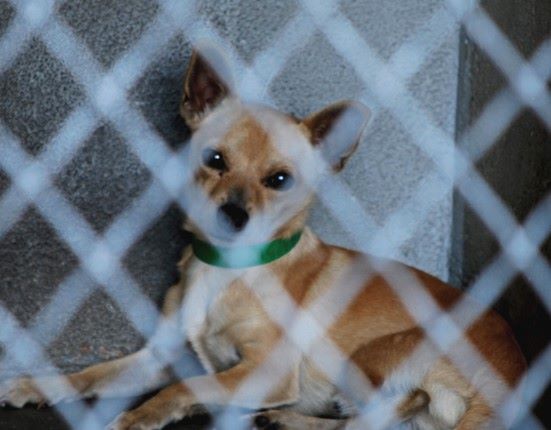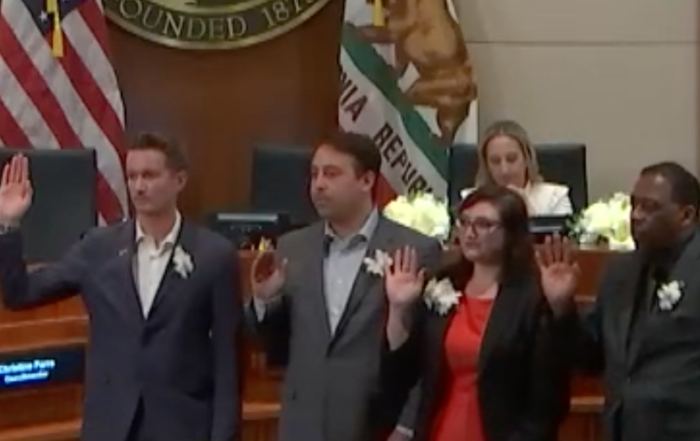Controller Kenneth Mejia announced last Friday that his office will audit the performance of L.A. Animal Services.
The audit aims to determine whether the city provides sheltered animals with humane care, whether the city’s animal intake and adoption programs maximize the department’s ability to save animals, and whether the department can manage the current demand for shelter services.
“L.A. Animal Services (LAAS) has long been in an uphill battle trying to provide adequate care for the City’s animals while the City falls short of providing adequate resources to the department,” Mejia said in a press release. “LAAS operates six shelters and took in approximately 39,000 dogs and cats in 2023. Its mission is to provide care for L.A.’s animals, and it strives for a 90 percent saving rate, which are nearly impossible task given that the City recently reduced the department’s operating budget by $1.4 million to $30.3 million this fiscal year – a fraction of the $5.9 billion total operating budget for all City departments.”
He further added, “Our audit aims to give L.A. Animal Services, the public, and policymakers a detailed understanding of LAAS’s struggle to provide adequate care, and the audit will identify ways the system can be improved, both at current funding levels and with additional funding. We hope the City can use our audit’s findings to improve the lives of our City’s pets.”
The announcement came just days after the resignation of Staycee Dains, LAAS’s General Manager (GM). Dains had already been on paid leave since August. Annette Ramirez, who previously led LAAS on an interim basis before Dains’ appointment in 2023, began leading the department in September.
LAAS oversees six shelters and six service districts serving more than 4 million residents, spread across nearly 500 square miles overseen by one general manager.
The current population at shelters is 1132 dogs. A July 2022 Los Angeles Times article reported severe overcrowding, with some dogs going weeks or months without walks.
From January to September of this year, 33,028 dogs, cats, and kittens entered L.A. city shelters, an 11 percent rise over the same period last year. A recent L.A. Times analysis found that around 1,224 dogs were euthanized, an increase of 72 percent from January to September compared to the same period last year. Some 1,517 cats were euthanized, which is a 17 percent increase from 2023.
In February 2024, the department’s general manager stated shelters were operating 400-500 animals over capacity, with insufficient staff to provide basic care.
In April, the L.A. City Council voted to move forward with a pay-to-foster program to decrease the financial burden of taking animals out of overcrowded shelters. The city council also put a moratorium on new breeding licenses until shelters fall below 75 percent capacity for three consecutive months.
Sheltering pets has proven difficult due to a lack of pet-friendly housing in Los Angeles, or in the worst cases, landlords forcing renters to surrender their pets. Both have contributed to an increase in pet drop-offs at shelters that was already high from the number dropped off during the COVID-19 pandemic.
Adoptions are not keeping pace with the number of animals coming in, which is leading to worsening conditions and higher rates of euthanasia.
Earlier this year, Assembly Bill 2216 was introduced which would have barred landlords from preventing a tenant from having a pet in their apartment, as well as prohibit landlords from imposing restrictions on breed, size, or number of pets without reasonable justification. The bill didn’t pass the Senate.
Best Friends Animal Society, one of the largest nonprofit animal welfare organizations, promotes adoption, spay/neuter, and educational programs. A July 2024 document from the organization states, “The team feels strongly that the biggest barrier to improving lifesaving at L.A. Animal Services (LAAS) is the leadership team, specifically the general manager.”
The document goes on to say that “staff, including members of the LAAS leadership team, have expressed concerns about a serious lack of communication, accountability, and direction from the GM. We were informed by the GM that there were no written standard operating procedures, and most staff mentioned that they have never received any written protocols.”
During a visit to the East Valley and Chesterfield Square facilities from July 22 to July 31, 2024, an assessment team from Best Friends Animal Society noted that they witnessed “nominal efforts to divert non-urgent animal intake at either facility,” and “shelter intake sharply increased, due to what can only be described as a ‘conveyor belt’ intake procedure with little to no attempts at diversion.”
“While ‘safety net’ programs (such as return to owner, finder to foster programming, home-to-home placements, and pet retention support) are advertised on the LAAS website, they were not witnessed by Best Friends staff, despite staff having had opportunities to utilize those programs.”
The document further adds, “It appeared that most staff members at both shelters were unaware that these programs even existed and that they had not received any training on program implementation.”
Neither the mayor’s office nor LAAS has given a reason for her departure or offered any information about the search for a new general manager.
Photo by Enio DePaz on iStockphoto.com
Stay informed. Sign up for The Westside Voice Newsletter
By clicking submit, you agree to share your email address with Westside Voice. We do not sell or share your information with anyone.







